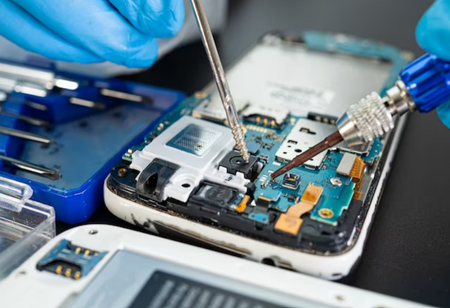Xiaomi warns of Supplier Hesitance Amid India's Regulatory Scrutiny
By Consultants Review Team
 Xiaomi, a prominent Chinese smartphone manufacturer, has conveyed concerns to New Delhi regarding the reluctance of smartphone component suppliers to establish operations in India amidst heightened scrutiny of Chinese firms by the Indian government.
Xiaomi, a prominent Chinese smartphone manufacturer, has conveyed concerns to New Delhi regarding the reluctance of smartphone component suppliers to establish operations in India amidst heightened scrutiny of Chinese firms by the Indian government.
According to a report from Reuters, Xiaomi has advocated for India to consider providing manufacturing incentives and reducing import tariffs for specific smartphone components. Despite being the leading player in India's smartphone market with an 18% share, Xiaomi assembles smartphones within India primarily using local components, with the remaining sourced from China and other regions.
Following the 2020 border clash between India and China, which resulted in casualties on both sides, India intensified its scrutiny of Chinese businesses, disrupting the investment plans of major Chinese corporations and eliciting repeated protests from Beijing. While Chinese companies operating in India tend to refrain from public statements regarding the scrutiny, Xiaomi's communication with the Indian government underscores ongoing challenges faced by Chinese firms in India, particularly in the smartphone sector, where Chinese manufacturers often supply critical components.
In a letter addressed to the Centre, Muralikrishnan B., President of Xiaomi India, he emphasized the necessity for India to implement "confidence-building" measures to incentivize component suppliers to establish local operations. He highlighted existing apprehensions among component suppliers regarding the feasibility of setting up operations in India, citing challenges faced by companies in the country, particularly those of Chinese origin.
Furthermore, Xiaomi raised concerns related to compliance and visa issues, although specifics were not provided. The company urged the government to address these concerns and foster confidence among foreign component suppliers, thereby encouraging them to establish manufacturing facilities in India.
It is noteworthy that Indian authorities previously accused Chinese smartphone company Vivo Communication Technology of violating certain visa regulations and alleged illicit remittances totaling $13 billion from India. Additionally, India has frozen over $600 million in Xiaomi assets over allegations of illegal remittances disguised as royalty payments to foreign entities, although both Chinese companies deny any wrongdoing.
Apart from regulatory scrutiny targeting companies like Xiaomi and Vivo, India has also implemented measures such as the ban on more than 300 Chinese apps, including TikTok, and halted planned projects by Chinese automakers BYD and Great Wall Motor since 2020.




